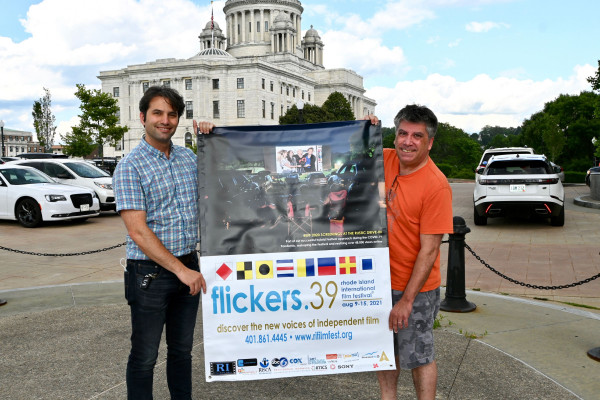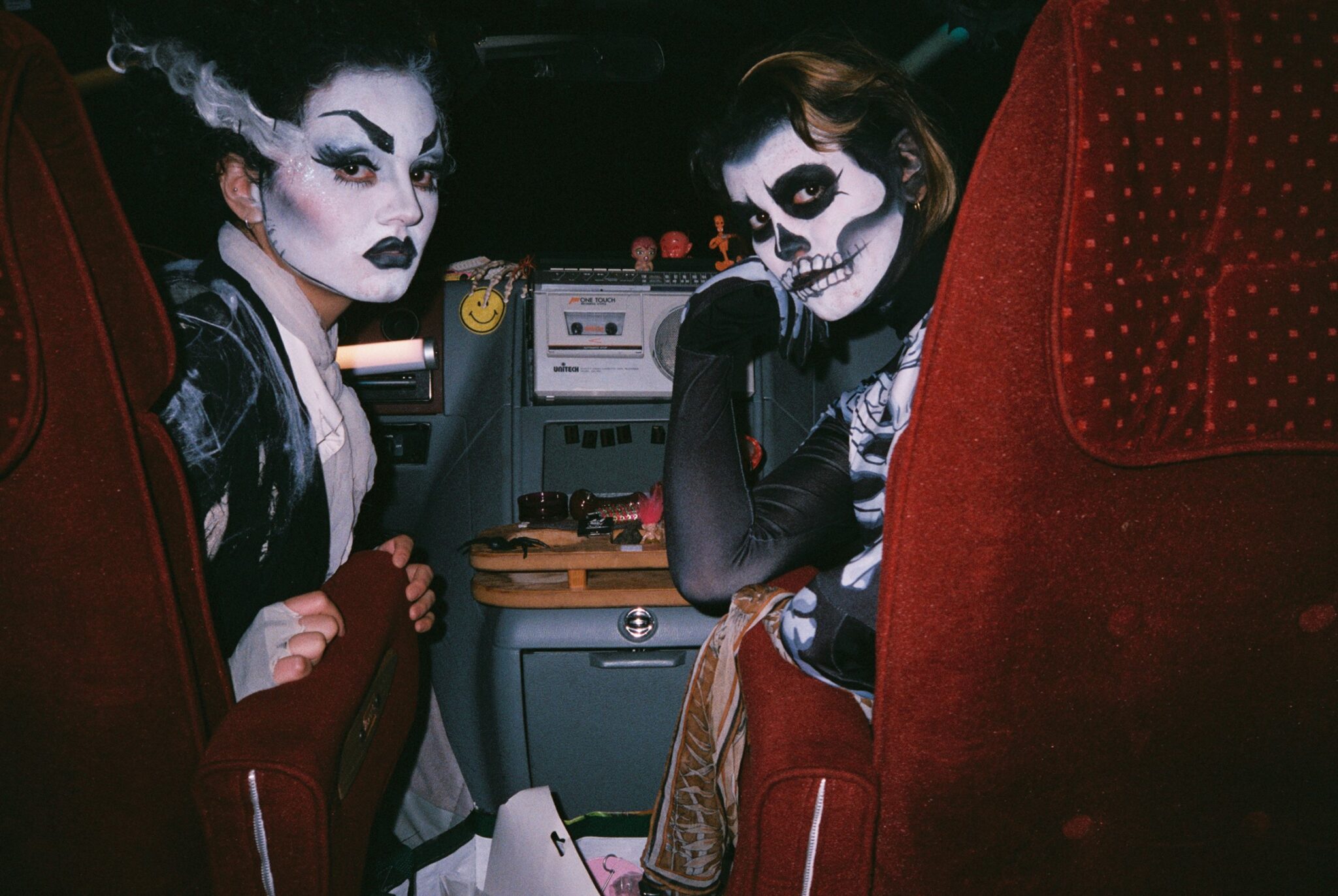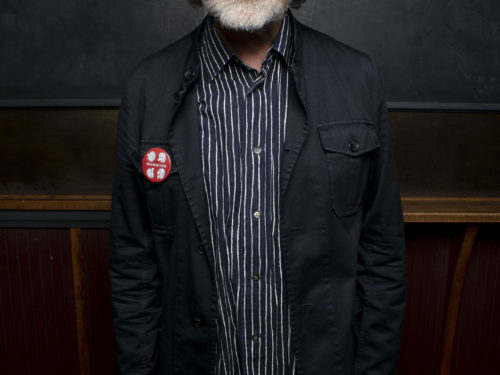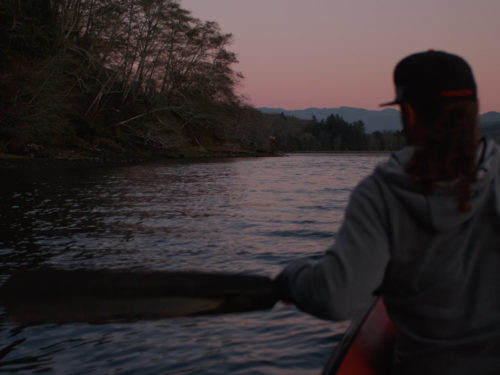Robert Delany kicks off his preview of RIIFF 2021 with a conversation with the festival’s Program Director about what makes 2021 such a crucial year for the festival
Flickers’ Rhode Island International Film Festival is back for its 25th year. After receiving more than 6,900 submissions, the festival kicks off with a slate of 450 feature length, animated, and short films on Monday, Aug. 9.
RIIFF was one of the first film festivals to pivot to an online format during the Coronavirus pandemic last year. This year the festival will be a hybrid of online and in-person screenings. Program Director Shawn Quirk calls the lineup the most eclectic group of films the festival has ever had. All films will be available online for free or for $2.
Quirk is in his 10th year working with the festival. He began as a filmmaker, and after attending the Cannes Film Festival in 2007 and 2008, he realized the power of film festivals. He went to work with RIIFF when he returned from teaching in France and working on films. He spoke with Robert Delany, a former RIIFF intern, about the challenge of pivoting to a virtual festival, how RIIFF selects its diverse slate of films, and what the future of film festivals may hold.
Find more information about RIIFF and how to watch the films. The festival runs Aug. 9-15.

Split Tooth Media: In the past you have described RIIFF as a discovery festival. How would you characterize a typical film that plays at RIIFF?
Shawn Quirk: We’re very open with our programming. With that in mind, we are an international festival, of course, and we are getting submissions from around the world. But since we are receiving films from so many different places, we really try to do our best to make sure that the program has a global voice that reflects a global perspective. A film we look for is one that simply showcases a new perspective, a new take on these classic narratives we all have become accustomed to.
RIIFF put on one of the first online festivals at the height of the pandemic back in August of 2020. What were the major challenges in putting on the festival during that time?
Just the pivot. We’re reinventing the culture of movie watching for the time being. To be honest we weren’t sure how people were going to react because it hadn’t been done before. It was all an experiment for us and it turned out to be a huge success. We ended up engaging more people by being online and having much more intimate discussions with our filmmakers because we weren’t restricted by the normal time constraints of being in a theater. Granted, we don’t have that in-person spontaneity that we would have with a live festival, but we were able to engage our filmmakers in ways that we would never have been able to if it was all in person.
So there’s pluses and minuses to both. I think all festivals have learned that there’s a lot of power to being in the virtual space. It opens the doors for a larger audience. We can have audience members in Japan, they could be in Vietnam, they don’t have to be in Providence. With that in mind, it’s been quite exceptional in terms of getting the work seen and in the hands of distributors, which has been really exciting to watch.
One of the most heartening parts of RIIFF 2020 was hearing how excited filmmakers were to screen their work in a time of such isolation. How did that feel for you to hear that reaction?
It was revelatory, really. We had just been through the worst parts of the pandemic, and I think everyone was just happy to have a connection and to show their work and get appreciated and recognized. It definitely was a very powerful year in terms of our engagements with our filmmakers, and the work itself was incredible as well. A lot of those films were shot during the quarantine in early 2020. It was great to see how they were able to overcome those obstacles to make some amazing work.
What is the process like building a program each year? Do the submissions guide the shape of the program, or do you have specific ideas in mind for the slates?
It’s a response to what we receive. Every year I feel like filmmakers are becoming more and more adventurous in terms of what they’re choosing to explore and the content they’re looking to produce. The films help to guide us in terms of what we can put together. Early in the year I’ll find what I call anchor films — key films that I know are going to be elemental films for the program. Then I’ll just keep those in mind as we receive more entries to see what compliments what we have already received. The program, in a sense, starts to build on it’s own organic momentum over time. The submissions do really start to tell a larger story as we receive more films and then we start to juxtapose titles with one another. You can’t really put two films that are too similar together because they’ll cancel each other out. You want to find films that have a voice, but the contrast is key.
Short films are such a keystone for RIIFF. Why does RIIFF gravitate to short films, and what are the advantages of shorter durations?
The advantage of shorter duration is the economics of time. It’s fascinating how, in my mind, with the short film it can sometimes be harder to do well than a feature. The short film is also the first step for any filmmaker to showcase that they can work with actors and construct a cohesive cinematic piece with a unified vision. The power of a short is like poetry. You can remember a poem and you can see the whole entire structure with one reading and get a sense of how it’s put together. You can recall it in your mind. It’s a little more difficult to do that with a feature film.
One of the staples of RIIFF is how much animation is featured at the festival. How did RIIFF become such a hub for cutting-edge animation?
Well, the Rhode Island School of Design is in our backyard and RISD is the leading animation school as far as experimental films go in this country. That’s part of our Rhode Island history and our heritage, but we’ve been highlighting key animated shorts since the beginning of the festival. Keep in mind, before Pixar would release short films with every feature — they only started doing that in more recent years — earlier on, they would create a series of animated shorts that they sent out to festivals. We would often have the North American premiere, or even the world premiere, of some of these Disney shorts that would go on to do very well, get nominated for an Oscar, and whatnot. So that was happening in the early 2000s. We have a long history with our Disney shorts and that kind of set the foundation for the animation moving forward.
RIIFF often has a robust slate of experimental films. What do these types of films add to the program?
Experimental cinema is vital in any program. What they add is a new perspective from an artistic sense. The great thing about experimental film is that it’s commenting on the medium itself. So we’re seeing a new perspective in terms of what can be represented in a film and what defines a film. These are very important questions that help us to take a much larger perspective on what we’re watching, and I think that helps to reinforce the power of the narrative films, too, when you put them together. They help each other out. I think any great narrative filmmaker can learn a lot from experimental cinema and vice versa. But experimental cinema allows you to open your mind. In some ways it can be a little constraining after a while with narrative cinema. You might find yourself not finding that fresh new idea. But experimental cinema is a great way to clear the writer’s block, find something new, and then come back with fresh eyes. It’s a way to refresh the perspective.
And the great thing about experimental cinema as well is that you can make it all by yourself. I think that’s one of the most liberating things for a filmmaker. We always are told time and time again that it takes a village, and it does take a village to make a movie. But it’s also nice to know that you can make a film like you can make a painting in a studio, by yourself. It may take a few years to do it, but it’s possible and that can be very empowering for a lot of people who may not have the resources to put together a crew of 30 people to make a film.
Working for RIIFF last year, it was great to see how the whole team works so closely together, led by George Marshall. How is the prep for the festival different when you have people on site and online as well?
The difference is that when we’re on site, we’re doing a lot more meetings, more event planning for the parties, the screenings, the cocktail hours, the swag bags, and the awards ceremony. All the fun stuff that really makes a week-long film festival come alive.
But when we’re online we actually have more time to sit down and dissect the program in fun ways, engage with filmmakers in ways that we wouldn’t necessarily have time for otherwise. Because when you do a Q&A at a live screening you’re doing a Q&A with six to eight filmmakers and you only have 15 minutes. Granted, it’s dynamic and exciting. You get the audience reactions which you’ll have with you for a lifetime. But by being online, we’re able to dive deep and talk more with the filmmakers for a longer period of time about their work and the creative process. And the interns can become a more pivotal part of the programming experience because working remotely allows us to engage with them in a different way. We are spending more time watching films instead of planning the events themselves. It’s a different workflow for sure.
WE ARE NOT DEAD YET – TEASER (ENG SUBS) from Joanne Rakotoarisoa on Vimeo.
What are some films you are most excited for people to see this year?
We have a number of great titles, but we have Tala’Vision (Murad Abu Eisheh, 2021), which is about a young girl and all she wants to do is watch a soccer match on TV but she can’t because ISIS has made TV illegal. This is in Syria during the Syrian Civil War. She tries everything she can to get her hands on a TV. It’s just a very human story of a much larger issue that’s happening right now. But it’s done on a very micro-scale and it’s done very well.
There’s We Are Not Dead Yet (Joanne Rakotoarisoa, 2020), which is a film about a young adolescent 17-year-old who’s just about to be drafted to the Ukrainian front for the war with Russia. The film’s about his final night with his friends before he either goes to war or goes AWOL. Another great film is You’re Dead Hélène (Michiel Blanchart, 2021). It’s about a guy who can’t seem to break up with his dead girlfriend. I was shocked to see how well constructed this film is. It’s a genre film, but it’s also one of our best shorts for the year.
As festivals have adapted over the pandemic, how has the role of film festivals changed, and what do you see the future of film festivals looking like?
Film festivals are changing. They’re becoming more empowered with all that’s going on because every year there’s more films being made. This has been a common phenomenon since the beginning of 2010 because once DSLRs came out with the Canon 5Ds, people were able to make cheap films digitally that were comparable to 16mm and 35mm films. Since that point every year there’s an exponential growth in content. So film festivals have grown from that point on. Regardless of what happens to movie theaters in general, film festivals will become even more important because they’ll serve as key events. Movie watching will never go away as an event, so festivals, if anything, will just become more special if movie watching becomes less of a normal everyday occurrence.
Audiences have grown over the years because people are exposed to international titles via Netflix, Amazon. When you go home for the weekend and you see your parents watching some Russian television show, you know something is up! And they’re not even cinephiles! So in my mind if that’s happening, people are becoming much more open with their choices. Ten years ago people didn’t like subtitles. We still played foreign titles anyway, of course, but people were much more provincial, in a sense, in terms of their choices. But nowadays everyone is so open with what they want to watch, what they want to see, and I think that’s made the festival culture emboldened and more dynamic, in this country at least.
Visit the Rhode Island International Film Festival’s website to find the schedule
Stay up to date with all things Split Tooth Media and follow Robert on Twitter
(Split Tooth may earn a commission from purchases made through affiliate links on our site.)




